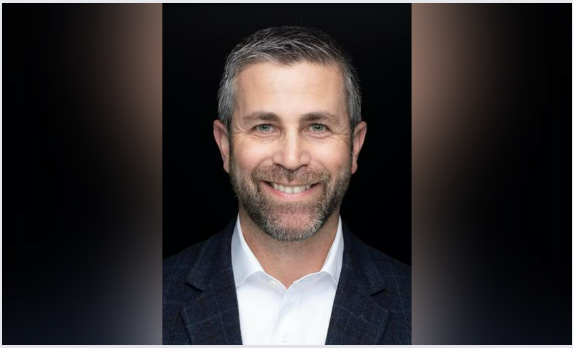Six US cities will serve as test markets

Rocket Mortgage has introduced Purchase Plus – a special purpose credit program aimed at enhancing access to homeownership in a half-dozen underserved communities – offering up to $7,500 in credits for first-time homebuyers to use toward their mortgage costs.
Mortgage Professional America spoke to Bill Banfield (pictured), the executive vice president of capital markets for Rocket Mortgage, to secure more details about the newly launched program. Banfield said the initiative is available in specific census tracts across six major cities where potential homebuyers could benefit the most – Atlanta, Baltimore, Chicago, Detroit, Memphis, and Philadelphia.
“We have a pretty big commitment to not just the city of Detroit, but to first-time homebuyers all over the country,” Banfield said during a telephone interview, referencing the Michigan city that is headquarters for the lender. “One of the things that continually pops up is people that didn’t get access to credit the last couple of years -- that could be purchase or refi. And in this case, we thought let’s put forth the Purchase Plus program, which is a special purpose credit program, and what we want to do is increase accessibility to those underserved communities. So we’re testing it in six major areas and we’re going to see if we can move the needle and put a dent in the group that’s been underserved for too long.”
Figuring prominently in the program is its ability to help consumers put together a down payment. Banfield noted that saving for a down payment is often cited as one of the most daunting barriers toward buying a house. Purchase Plus can help minimize the hurdle by providing eligible homebuyers in one of the six cities a base credit of $5,000 plus an additional lender credit totaling 1% of the home’s purchase price – up to $2,500 – for a potential savings of $7,500, he said.
Read more: Bank of America expands minority lending possibilities
“The number one issue for anybody trying to buy a home is saving for their down payment and their closing costs,” Banfield explained. “So we said, we do a lot of lending in these areas. We’ll do $5,000 toward their down payment and an additional 1% up to $2,500. So, it could be $7,500 combined.”
Another benefit of Purchase Plus, he noted, is the elimination of exclusions based on area median income, thereby broadening the scope of borrowers availing themselves of the program. He added that the first phase of Purchase Plus will focus on specific census tracts in each of the six cities and their surrounding metropolitan areas – places where the initiative can make the biggest impact in bridging the homeownership gap.
The program also offers something of a twist: Banfield noted that borrowers within the six test cities who become eligible for the Purchase Plus program can buy a home in any city of their choosing. “There’s an interesting feature in here that is unique that I don’t think I’ve seen done before,” Banfield said. “If you live in one of those communities and you’re now eligible, you don’t have to buy in that community. Are we trying to reinforce buying in those communities? Sure. But what we’re really trying to do is opening the door to generational wealth through buying a home.”
Read next: MBA launches initiative to tackle racial homeownership gap
Rocket Mortgage offers several other programs designed to expand access to homeownership, Banfield noted. As an example, he cited the 2021 launch of Detroit Home Loan+ to support those looking to purchase in the headquarters city via a $2,500 lender credit and homebuyer resources.
Purchase Plus offers a key difference, he noted: “A lot of these programs have success, but they’re small in scale,” Banfield said. “There’s a key difference in what we’re doing this time though. This time, the money can be used toward down payment. This is like an evolution of what we were doing with Detroit Home Loans+. It’s now in more markets and I think it’s going to be a very popular option for people in those communities.”
Banfield suggested the program is an offshoot of his company’s culture in helping people achieve homeownership: “The underserved markets, again whether it’s a purchase or refi – there’s a lot of people in those communities who feel they were left behind,” he said. “What we’re trying to do is coming up with ways to try to help somebody minimize their payment – it could be through having some of the cheapest mortgage insurance, so when you don’t put down 20% on a conventional loan we can help there; we make sure someone can make an offer with confidence.”
For the lender, the Purchase Plus program could be viewed as something of a loss leader given reductions in revenue that make the credits possible. But the firm is banking on future dividends by helping create generational wealth today, Banfield suggested.
“One thing for sure when you start thinking about borrowers who might need more affordable-type loans and us contributing thousands of dollars to it, it’s pretty clear we’re not making money on these transactions,” he said. “But we believe in the lifetime value of the client. Part of the way we’re looking at it as one of the largest lenders for first-time homebuyers, we believe if we can help people and they’ve learned to trust us, we’ll be there for any subsequent financing down the road. From that perspective, it’s a good investment.”
He agreed it behooves all lenders to cultivate relationships with consumers outside the mainstream that are growing in numbers and influence: “We have a phrase here – for more than profit. It shows up in the community fund, in what we’re doing in Detroit. This is us leaning into what we believe is something we’re really good at. In addition to this, we’re the largest FHA lender in the country by multiples. We’re there for people with whatever products they need.”



